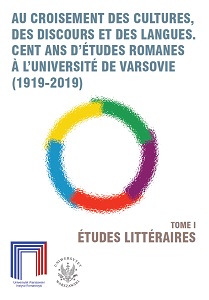Les «paroles suffoquées». L’esthétique de l’indicible et de la réticence dans les récits testimoniaux de l’après-guerre européen
Smothered Words. The Aesthetics of unspeakable and of reluctance in testimonial accounts of the European post-war period
Author(s): Joanna Teklik
Subject(s): Theoretical Linguistics, Applied Linguistics, Studies of Literature, French Literature, Philology
Published by: Wydawnictwa Uniwersytetu Warszawskiego
Keywords: World War II; Holocaust Literature; testimony; concentration camp; reticence
Summary/Abstract: The survivors of the concentration camps are often heavily working on their words to transcribe the trauma they have lived. As a matter of fact, the complete reconstruction of the events and dramas appears to be impossible; it is a reason why the texts are full of digressions, breakings, a lot of disruptions revealing in background the truth upon the human nature. Taking up again their own experience, witnesses such as Robert Antelme, Jean Cayrol, Charlotte Delbo, Imre Kertész, Primo Levi, Jorge Semprun or Elie Wiesel give a new interpretation of it and split it up. In the same time, they are twice affected by this breaking, through the testimony of their text. The short and scattered form, disrupted in its expression is destined for expressing the quest of the sense appearing in Europe at the end of the Second World War, in a time, as never before, where the human being is in search of strong moral references. The rhetorical ‘reticence’ is a manner to reflect the present world as it appears : split up, wounded in the inner deepness of itself.
- Page Range: 157-166
- Page Count: 10
- Publication Year: 2021
- Language: French
- Content File-PDF

